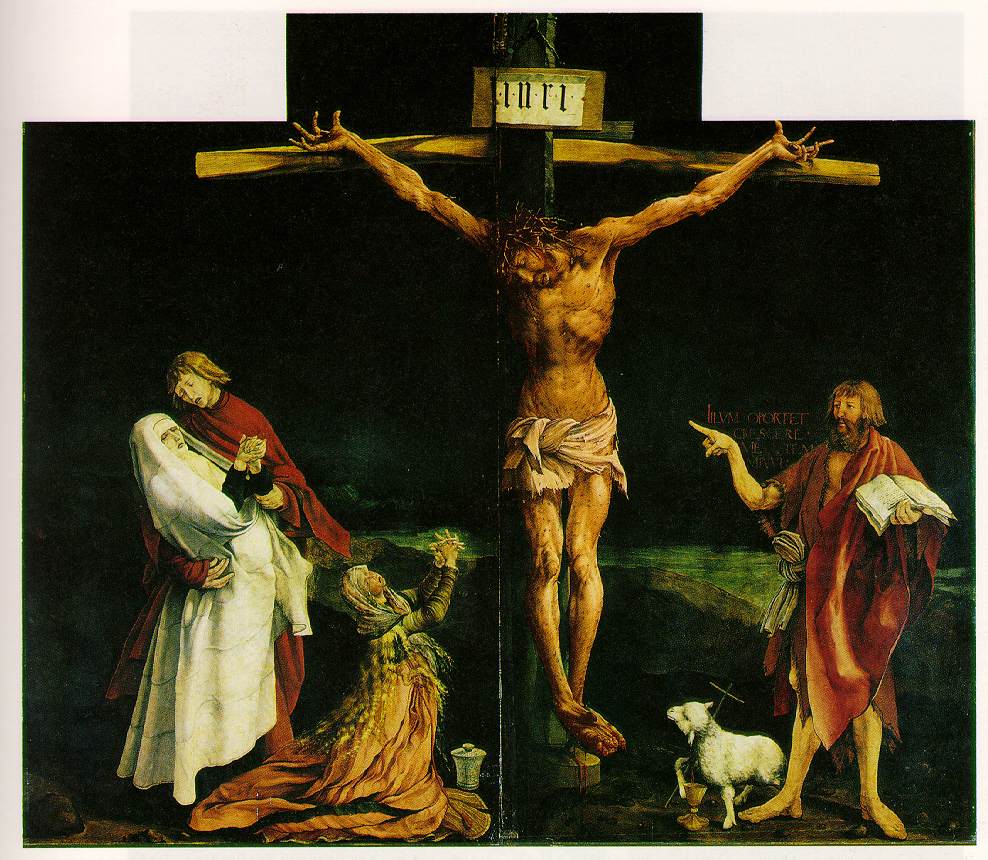God the Father’s providential plan for the sending of his only Son into the world includes the sending of John the Baptist.Founded on what was then the northern frontier of European settlement in the emerging American colonies, Dartmouth College adopted the startling motto: Vox clamantis in deserto (“a voice crying out in the wilderness”). In the wilderness of New Hampshire, Eleazar Wheelock’s college was to have an evangelical mission: boldly proclaiming the Gospel where it had not yet been announced. His school was to be a type of John the Baptist, heralding the salvation that has come with the advent of Jesus Christ.
God the Father’s providential plan for the sending of his only Son into the world includes the sending of John the Baptist. John’s particular vocation was to announce the coming of Christ. But the Father’s plan was so complete that even John, the Forerunner of Christ, was announced! John is one of whom the prophets spoke. Isaiah foresaw him, leading him to prophesy about John as “the voice crying out in the wilderness.” In fact, elsewhere in Scripture Jesus himself tells us, “Among those born of women there has been none greater than John the Baptist” (Mt. 11:11).

Read more:
The reason John the Baptist has wings in Orthodox icons
But what makes John so great? Why is the cry of his voice in the wilderness so important? Because John always points to Christ. The Isenheim Altarpiece, which features a depiction of the crucifixion by Matthias Grünewald, includes the figure of John the Baptist. In the painting, John, who predeceased Christ and was thus not present at the crucifixion, stands at the foot of the cross—opposite the Virgin Mary, Mary Magdalen, and the apostle John—pointing dramatically at the cross. The powerful and bright figure of John harshly contrasts with the dark, mystical tone of the painting. A lamb sits at John’s feet, reminding the viewer that John announced the Lamb of God. His painted figure pointing to Jesus on the Cross, the Baptist announces to the world, this is the one who will save his people from their sins.

The painting features another remarkable detail. Above the pointing arm of John the Baptist can be read the words, in Latin: illum oportet crescere me autem minui (“He must increase; I must decrease”). John’s greatness rests on his fundamental conviction that Christ alone is great. Emphasizing how important John’s role of pointing to Christ is, Pope Francis says, “It’s beautiful to think of the Christian vocation like this…a Christian doesn’t proclaim himself, he proclaims another, he prepares the path to another: to the Lord.” Knowing that the Lord had come, John places his life in the service of the Savior. The whole shape and pattern of John’s life points to Jesus.
John can point so emphatically, so clearly, because the Spirit of the Lord has descended upon him. This is the same Spirit which animated and led the preaching and ministry of the prophets of old. Descending upon John the Baptist, the Spirit leads him to know what to say, to boldly proclaim Christ.
Jesus, the shoot which sprouts from the stump of Jesse, knows the fulness of the Spirit. Jesus, son of David, is thereby a son of Jesse. The gifts, as we call these qualities bestowed by the Holy Spirit were in Christ in a pre-eminent degree. Isaiah enumerates the gifts, saying, upon [Jesus] shall be, “a spirit of wisdom and of understanding, a spirit of counsel and of strength, a spirit of knowledge and of fear of the LORD, and his delight shall be the fear of the LORD.” The gifts permit for the reign of God to come. As they animated the prophets, they direct Gospel-minded action, opening the door for the peace that only God’s kingdom brings.
The gifts are not only bestowed upon Jesus, John the Baptist, or the prophets. The gifts reign in the heart of every Christian. Conferred and nourished by the sacraments, the gifts prompt us to cry out, to point to Christ. They animate our attempts to evangelize, empower our prayer, and incite charitable deeds. The gifts can be hampered, however, if left unaided by the virtues. In today’s Gospel John the Baptist exemplifies particularly the virtue of humility. Declaring to all the world his unworthiness, John the Baptist says, “I am not worthy to carry his sandals.” We too must cultivate this virtue. We must be unafraid of being little, for only then will we be great.
Today, the Catholic ministry at Dartmouth, Aquinas House (or “AQ” as it’s lovingly called by students), boasts a chapel with the college motto Vox clamantis in deserto emblazoned in a lovely stained glass window behind the altar. As the priest raises the Eucharist after the consecration, the sacred host appears before the words describing John the Baptist. At each Mass, the one announced by John comes. Like John, let us humble ourselves to receive the one who humbles himself to come to us under the guise of bread.








